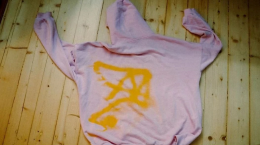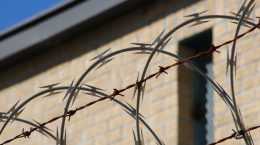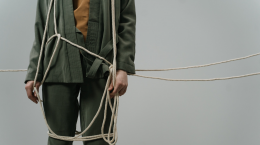In Belarus, therapeutic and labour preventive centres (LTPs) are places where alcoholics are sent for “rehabilitation”. However, this rehabilitation consists of poor-quality food, labour therapy with zero wages, and the use of violence. At the snap of a finger, the period of “rehabilitation” can be increased – without any explanation. There are already such cases in the LTP system.
Belarus is one of the few countries which have preserved therapeutic and labour preventive clinics. Besides our country, there are such institutions in Turkmenistan and unrecognized Transnistria. In Belarus, the court sends a person to the LTP if he has three charges in the police under the influence of alcohol. One way to “cure” alcoholics is to subject them to compulsory labour.
The stories of inmates of LTPs tend to resemble each other. Men start abusing alcohol – some in their teens, with friends, some later, trying to cope with stress. But they try to work at it. At first, the alcoholics are supervised by the police, but they don’t stop drinking. After all, the police don’t pay any attention to whether the person is drunk or sober. The main thing is to keep him at home and not break the public order. On the other hand, not many people start treatment for alcohol dependency and quit drinking only when they are under serious threat of incarceration. However, it does not save, and most often, the person who has taken the path of correction is sent to a preventive clinic with the diagnosis of “the syndrome of dependence on alcohol of the average stage”.
Prisoners are sent to the lowest-paid and hardest jobs in LTPs. For example, in one of the LTPs, inmates work in an industrial zone, spreading coal. The administration is not interested if a person has any health problems or contraindications. It is common practice to send an inmate to this kind of work if he has a lung problem and such work is contraindicated for him. There is almost no pay for work – the money prisoners receive is not even enough to buy a packet of cigarettes. The prisoners got help by packages from home. But there are a limited number of parcels: two parcels and one big box a year. Relatives transfer money to the prisoners’ accounts, but there is a constant shortage of these as well. For any violation, prisoners get punished by being deprived of phone calls or parcels and put in an isolation cell. Prisoners have very little free time. To get freedom from unhealthy slave labour, many choose courses at the LTP. When they have a spare minute, they read books from the local library and get creative.
Recently some LTPs in Belarus imposed restrictions on calls not seen before. Now you can talk to your family on the phone only once a week. As a result, a squad of 100 people (on average) do not have time to call home in three hours. Many cannot reach their relatives for months. If they are lucky with the administration, the institution’s staff may be able to get a call from home.
Another problem in the LTPs is medical care. There are paramedics in the preventive clinics, but this does not help the inmates. In case of health problems, prisoners get aspirin. There are stories of people with chronic illnesses, but they do not receive proper treatment.
In January 2022, the inmates of the LTP, registered in Grodno region started to get sentences added. Most often, this is done at the Skype court. The defendants are not heard at it, and there may not be a narcologist and a district police officer at the trial. The convicts are faced with inviting strangers who present a point of view profitable to the judge. They judge quickly, without listening to or accepting any evidence. And the arguments for adding a sentence are silly – for example, one of the convicts was sentenced to an extra year in the LTP for not being there for the first time. Contradictory reasons are also found for the other prisoners, and there are dozens of them.
Judges and police say to relatives that after releasing, the prisoners will start drinking alcohol again. But it is not clear how to fight this system, as it leaves no chance. The prisoner can send appeals to the prosecutor’s office and the court, but they get answers, saying that the document was drawn up in the wrong form. In addition, inmates must pay an appeal fee of 58 rubles. It is a significant fee for many inmates of LTPs, but the appeal is not considered without it.
“The addition of sentences is massive,” said a relative of one of the inmates of the preventive detention facility. “Just before they are released, inmates are having their cases re-examined and their sentences added. Why would they do such a thing? A person is looking forward to being released, and suddenly it’s like this! The state needs a free labour force. Some prisoners are in terrible condition and can do something for themselves”.
Here’s what one of the prisoners of the Belarusian LTP wrote at liberty: “According to the law, one can go to parole from two years after one year. But the court chairman said that he wouldn’t even consider such cases before three-quarters of the term, i.e. after a year and a half. Our cops would be glad to help, but they will not go against the court, they cannot. That is such sad news”.
According to our information, only people from Grodno Region get new sentences. One can only speculate what such selectivity has to do with it. Grodno was the first Belarusian city where the authorities started a dialogue with the Belarusians after the elections of 2020. They allowed peaceful rallies here, broadcasted them on the state regional TV and apologized to the detained. However, not for long: the authorities in Minsk regrouped, a new head of the region Vladimir Karanik was appointed, and Lukashenko came to Grodno. Dismissals, administrative proceedings, criminal cases, repression and persecution began. But the vindictive dictator cannot forget his insult to Grodno citizens even after a year and a half.
There are many Catholics in Grodno region. Lukashenko regularly persecutes them. A priest is not allowed to visit the Catholic Olga Zolotar. Catholic Pavel Kuchynski, with the fourth stage of cancer, is kept in the pre-trial detention centre and receives no medical assistance. Stolbtsy Catholic priest Igor Lashuk got detained on charges of extremism. After the Catholic Easter, the priest from Horki, Andrey Kevlich, dean of Mahiliou deanery, was detained. Priest Viachaslau Barok was forced to leave the country back in 2021. And there are, alas, many such examples.
In addition, other prisoners who have received prison sentences under political articles, also got new sentences. In March 2022, political prisoner Nikita Emelianov, accused of maliciously disobeying the demands of the administration of the jail for violating the internal regulations, was added another two years in prison. In April 2022, it became known that political prisoner journalist Ekaterina Andreeva got charged with high treason. The girl is now in a pre-trial detention centre and faces from 7 to 15 years in prison. We don’t know what she got accused of, as her lawyer is under a non-disclosure pledge. But her trial could take place as early as May.
There is no denying that the state needs free labour because there is no money to pay people, but a lot of dirty work needs to be done. With the help of slave labour of prisoners, the illegitimate authorities save on wages, overalls, occupational safety and medicine. Lukashenka considers imprisoned people to be almost the scum of the society, who can be abused and for whom there are no laws.







